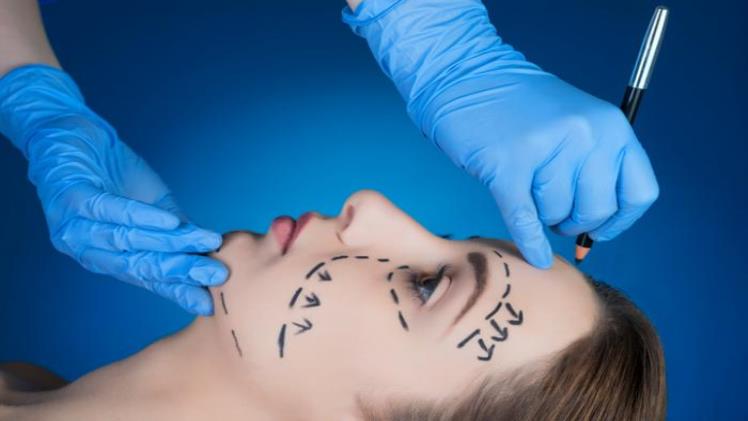Surgery to correct sagging skin on the face The doctor will remove excess fat that accumulates under the skin. and pull muscles to tighten by considering the appropriate treatment of the patient The surgery is divided into 2 parts: 1. Upper Face Area Forehead Lift 2. Middle Face and Lower Anterior Face Lift
Note : Plastic (Cosmetic) Surgery Center that is notable all around the world You can track down more data about medical procedure at https://www.bangmodaesthetic.com/service/facelift
Surgery to lift the muscles and subcutaneous fat back to their proper position and cut off excess skin to make the face firmer and smoother. Which face lift surgery will help restore youthfulness look natural It will help reduce wrinkles. sagging of the face with modern surgical techniques Helps to achieve natural looking results. recover quickly and last a long time
The face lift surgery can be performed on specific parts such as
– forehead pull
– raising eyebrows
– Pull the central page
– Cheekbone lifting
– Pulling the lower face
– Correction of the wattle under the chin
– Pulling the neck on both sides and in the middle
It can also be done in conjunction with other types of surgery such as eyelid surgery. keeping bags under the eyes Cheekbone augmentation, nose augmentation, chin augmentation, liposuction and facial fat filling, etc.
Suitable for face lift surgery
- People who have problems or want to restructure their faces to look younger. Reduce wrinkles and sagging
- No age limit, considering the skin condition and sagging of the face. and the needs of those undergoing surgery
- The weight is normal. If you want to lose weight Should lose weight as needed before surgery.
- There is no congenital disease that is contraindicated in surgery, such as diseases of blood clotting disorders (Hemophilia), diseases with disorders of wound healing. (Ehlers-Danlos Syndrome), etc.
- Not Pregnant or breastfeeding
- Have reasonable expectations of results
- Have normal mental health
Risks and Side Effects of Facelift Surgery
All types of surgeries carry risks, but not all of these risks happen to everyone. The doctor will give advice and assess the risks. give an opportunity to ask questions Then together to decide on the surgery.
The most common concern about facelift surgery are the scars and the results.
- Scars if there is no history of keloid scars. Smooth results are usually obtained. hide in the right place
- The results obtained do not match the desired An experienced doctor will be able to advise. and designing the surgery to achieve beautiful, natural-looking results that last for a long time and with the least chance of side effects
Other risks include bleeding, hematoma, and wound healing complications. Skin necrosis, which is often found in people who smoke heavily or people with underlying medical conditions with vascular problems such as diabetes and high blood pressure. Hyperlipidemia, etc., but if the symptoms are well controlled, it is not a contraindication to surgery.
- Stretching, pulling, or cutting facial nerve injury (which is only 1-3% rare) makes some facial muscles unable to function. But most (90-95%) will return to normal function within 3-6 months.
Preparation before facelift surgery
6 months before facelift surgery
– Do not use acne medication that contains vitamin A (Isotretinoin) because it may affect the healing of wounds.
– Refrain from doing Botox, Filler on the face
3 months before facelift surgery
– prepare the body with regular exercise get enough rest
– Annual health check If you have a congenital disease Should see a doctor to treat and control symptoms to be in a normal state.
– Refrain from doing laser threading on the face
4 weeks before facelift surgery
– Refrain from smoking before and after the surgery for at least 4 weeks.
– Refrain from piercing/tattooing or sunbathing
– Avoid surgery in the near or on the menstruation period. If you are unsure, consult your doctor to come up with a plan to postpone your period.
10 days before facelift surgery
Stop taking medications that affect blood clotting, including:
– Anticoagulants such as Aspirin, Coumadin, Ticlid, Plavix or Aggrenox.
– Nsaids pain relievers such as Ibuprofen, Advil, Motrin, Nuprin, Aleve, Relafen, Naprosyn, Diclofenac, Naproxen, Voltaren, Daypro, Feldene, Clinoril, Lodine, Indocin, Orudis, etc.
– sedative Certain sleeping pills, such as Zoloft, Lexapro, Prozac, Pristiq, etc.
Avoid all kinds of vitamins and dietary supplements. that may affect blood clotting, such as Multivitamins, Fish oil, Omega3, Co-enzyme Q10, Evening Primrose Oil, Glucosamine, Arnica, Ginseng, Gingko, herbs, etc.
In addition to the advice above You should research information about facelift surgery, risks, outcomes, gather questions that you do not understand, consult your doctor, discuss your post-surgical expectations with your doctor. for mutual understanding and for the best results


